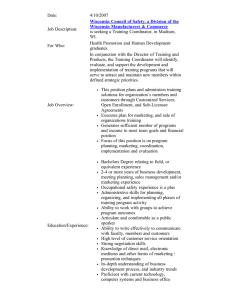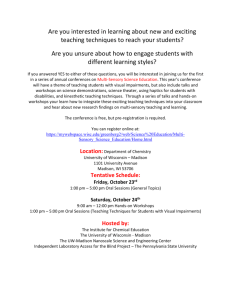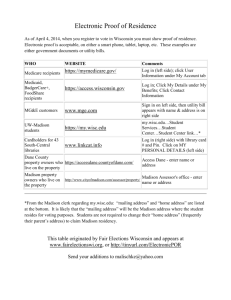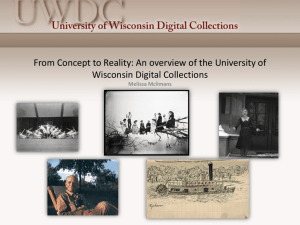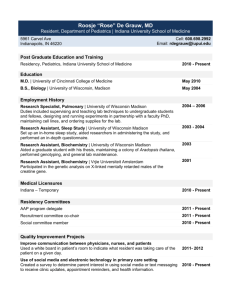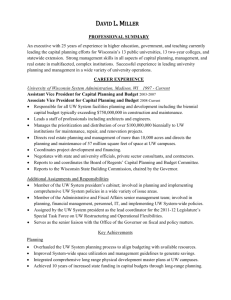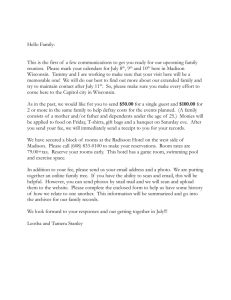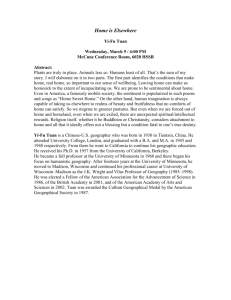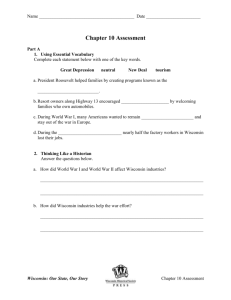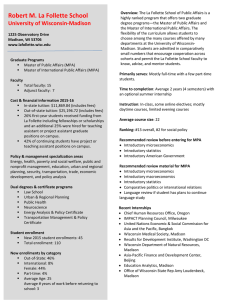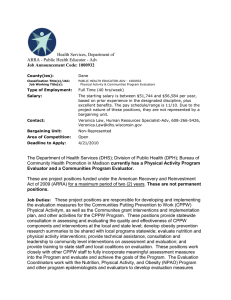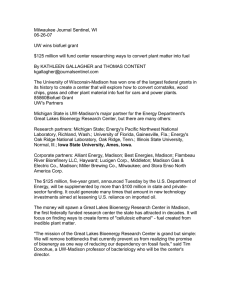The Wisconsin Experience Essential Learning Outcomes for UW–Madison Students
advertisement
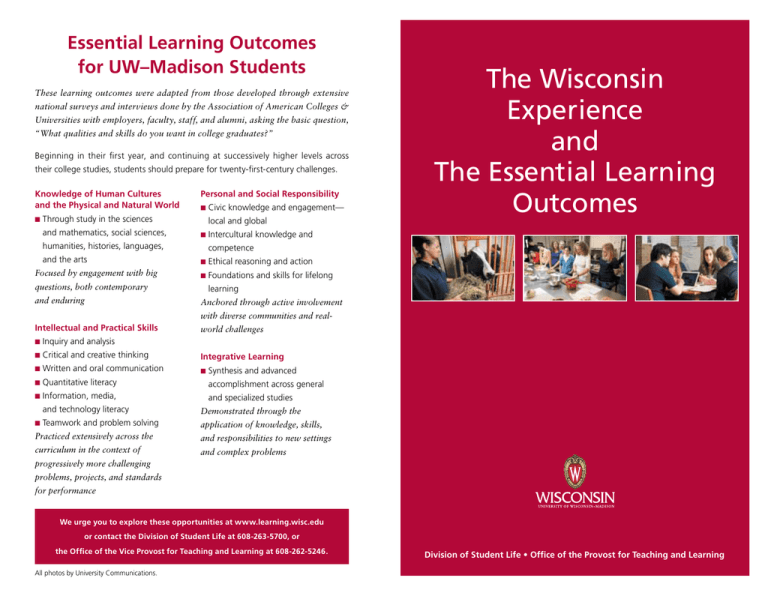
Essential Learning Outcomes for UW–Madison Students These learning outcomes were adapted from those developed through extensive national surveys and interviews done by the Association of American Colleges & Universities with employers, faculty, staff, and alumni, asking the basic question, “What qualities and skills do you want in college graduates?” Beginning in their first year, and continuing at successively higher levels across their college studies, students should prepare for twenty-first-century challenges. Knowledge of Human Cultures and the Physical and Natural World n Personal and Social Responsibility n Through study in the sciences and mathematics, social sciences, local and global n humanities, histories, languages, and the arts Focused by engagement with big Intercultural knowledge and competence n Ethical reasoning and action n Foundations and skills for lifelong questions, both contemporary and enduring Civic knowledge and engagement— The Wisconsin Experience and The Essential Learning Outcomes learning Anchored through active involvement with diverse communities and real- Intellectual and Practical Skills world challenges n Inquiry and analysis n Critical and creative thinking Integrative Learning n Written and oral communication n n Quantitative literacy n Information, media, n Synthesis and advanced accomplishment across general and specialized studies and technology literacy Demonstrated through the Teamwork and problem solving application of knowledge, skills, Practiced extensively across the and responsibilities to new settings curriculum in the context of and complex problems progressively more challenging problems, projects, and standards for performance We urge you to explore these opportunities at www.learning.wisc.edu or contact the Division of Student Life at 608-263-5700, or the Office of the Vice Provost for Teaching and Learning at 608-262-5246 . All photos by University Communications. Division of Student Life • Office of the Provost for Teaching and Learning The Wisconsin Experience at UW–Madison UW–Madison graduates become extraordinary citizens, community members and national and global leaders. We have produced more Peace Corps and Teach for America volunteers than almost any other university in the country. More leaders of major corporations have graduated from UW–Madison than any other university in the country. We are among the top producers of faculty members who teach at research-intensive institutions around the world. Something about the UW–Madison experience prepares our students to become outstanding leaders who are engaged locally, nationally and globally. That “something” is the Wisconsin Experience. Grounded in the 100-year old Wisconsin Idea and our progressive history, our historical mission has evolved to create an expectation for all of us—faculty, staff, and students— to apply in and out of classroom learning in ways that have significant and positive impacts on the world. What we do matters, and together we can solve any problem. It is this unique Wisconsin Experience that produces graduates who think beyond the conventional wisdom, who are creative problem-solvers who know how to integrate passion with empirical analysis, who know how to seek out, evaluate, and create new knowledge and technologies, who can adapt to new situations, and who are engaged citizens of the world. The Wisconsin Experience comprises the following inquiry-based, highimpact practices: S ubstantial research experiences that generate knowledge and analytical skills nGlobal and cultural competencies and engagement nLeadership and activism opportunities nApplication of knowledge in the “real world” n The nature of these opportunities and how we offer them makes UW– Madison unique in higher education. The resulting Wisconsin Experience is characterized by intentional integration of in- and out-of-class learning, by creative and entrepreneurial engagement in real world problems, and through active student leadership. Here are a few examples of these opportunities: n Service-learning and communityapprenticeships on competitively funded projects nSummer internships in for-profit and non-profit organizations nFirst Wave and other multicultural arts initiatives nPeer nThe mentoring in the classroom Undergraduate Research Scholars Program nFirst-Year Interest Groups (FIGs) nEntrepreneurship opportunities for graduate and undergraduate students nIntercultural for health professions in rural, central city, and other underserved areas nLeadership based research nResearch nTraining dialogues through small group learning communities certificates in schools, colleges and majors nActivism and leadership through student organizations and campuscommunity partnerships nComprehensive honors and honors theses in the major nYear-long and semester-long study and research abroad nNational and international internships nResidential nResearch Learning Communities communities for graduate students nGraduate and professional student development
